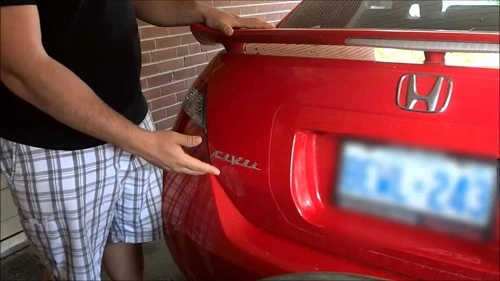No, it is not illegal to debadge your car in the United States as long as it does not violate state or federal laws related to fraud, misrepresentation, or vehicle identification. Debadging refers to the removal of manufacturer emblems, logos, or model designations from a vehicle. While this modification is legal in most cases, there are exceptions and considerations to keep in mind.
What Is Debadging?
Debadging involves removing the manufacturer’s branding from a vehicle, such as logos, emblems, or model names. This practice is often done for aesthetic reasons, to simplify the vehicle’s appearance, or to create a more customized look. While it is generally a personal choice, there are legal implications depending on how and why the badges are removed.
Legal Considerations for Debadging
- Misrepresentation and Fraud
- Removing badges becomes illegal if it is done with the intent to deceive, such as debadging a lower-tier model to misrepresent it as a higher-tier or luxury vehicle.
- Selling or advertising a debadged vehicle in a way that misleads buyers about the make or model can result in civil or criminal penalties for fraud.
- VIN and Identification Plates
- Debadging must not interfere with legally required vehicle identification elements, such as the Vehicle Identification Number (VIN) or federally mandated labels. Altering or removing these identifiers is a federal offense under the Motor Vehicle Theft Law Enforcement Act.
- State Regulations
- Most states allow cosmetic changes to a vehicle, including debadging, as long as it does not interfere with required safety or identification features, such as license plates, inspection stickers, or emissions labels.
- Leased or Financed Vehicles
- Debadging a leased or financed vehicle without permission from the lessor or lender may violate the terms of the lease or loan agreement. Restoring the vehicle to its original condition may be required when returning it.
Potential Consequences of Improper Debadging
1. Fraud Charges: Intentionally misrepresenting a vehicle’s make, model, or condition can result in legal action, including fines, lawsuits, or even criminal charges in extreme cases.
2. Void Warranty: Some manufacturers may void warranty coverage if the debadging process damages the paint or bodywork, particularly if the badges were removed improperly.
3. Reduced Resale Value: Debadging can impact resale value if potential buyers perceive the modification as unprofessional or deceptive.
Tips for Debadging Legally and Safely
1. Avoid Misrepresentation: Ensure the vehicle’s debadging does not mislead others about the make, model, or trim level.
2. Check Ownership Agreements: If the vehicle is leased or financed, consult the agreement to confirm whether modifications like debadging are allowed.
3. Use Proper Tools and Techniques: Avoid damaging the paint or bodywork by using safe removal methods, such as applying heat and adhesive remover.
4. Document the Process: If you plan to sell the vehicle, keep documentation of the debadging to assure buyers that the modification was cosmetic and not meant to hide damage or misrepresentation.
Related FAQs
Q1. Is debadging legal in all states?
Ans: Yes, debadging is legal in all states as long as it does not violate laws related to fraud or vehicle identification.
Q2. Can I debadge a leased car?
Ans: Typically, you need permission from the leasing company to make any modifications, including debadging. Unauthorized modifications may result in penalties.
Q3. Does debadging void my car warranty?
Ans: It can if the debadging process causes damage to the vehicle, such as scratches or paint issues. Always check the terms of your warranty before proceeding.
Q4. Is it legal to remove the manufacturer’s logo but keep the VIN intact?
Ans: Yes, removing the manufacturer’s logo is legal as long as the VIN and other federally required identifiers remain intact and unaltered.
Q5. Will debadging lower my car’s resale value?
Ans: It depends on the buyer. Some may prefer the clean look, while others may perceive it as a sign of tampering or damage.
Conclusion
Debadging your car is legal in the United States, provided it is done for personal or aesthetic reasons and does not violate laws related to fraud or vehicle identification. While it is a common practice among car enthusiasts, it is important to ensure compliance with local laws, lease agreements, and warranty terms. Properly debadging your vehicle can give it a customized look without legal or financial complications.


